
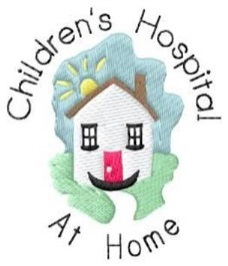 Like many others in the NHS, autumn and winter are undoubtedly the busiest seasons for us in the Children’s Asthma Service at Croydon Health Services NHS Trust.
Like many others in the NHS, autumn and winter are undoubtedly the busiest seasons for us in the Children’s Asthma Service at Croydon Health Services NHS Trust.
Our service was commissioned to reduce the number of asthma-related A&E attendances and hospital admissions for children and young people. Croydon University Hospital has the highest number of emergency presentations for asthma and wheeze in children, so we have had a lot to get our teeth into! Our role is very much one of prevention and health promotion; we provide a one-off intensive home visit to educate and support children and their families to confidently self-manage their asthma.
September brings Week 38 or the “September Spike” for asthma hospital admissions. A global phenomenon for the past 14 years, the second week of September sees a sharp peak in asthma-related hospital presentations. The reasons for this vary, but the main culprits are the changes in weather, and the return to school or college, with subsequent exposure to bugs and viral illnesses, particularly in small children. Another very common reason for this spike is a lapse in preventer inhaler use over the summer school holidays. Going to bed late and sleeping in late means a change in routine, and established asthma habits may slip.
Unsurprisingly then, this time of year sees a large influx of referrals to our service. As a small team, it can be challenging coping with the increase in referrals, but we cope well with the demand by triaging referrals, prioritising our workload and working flexibly, such as offering after school visits and a Saturday service.
To prepare for the Week 38 spike, most of our health promotion campaigns that we run over the late summer, are therefore aimed at getting children and their families being prepared for the change of seasons.
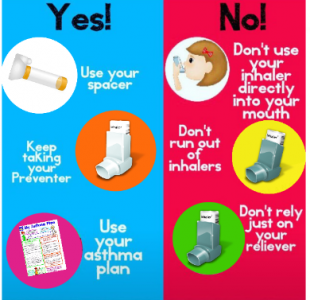
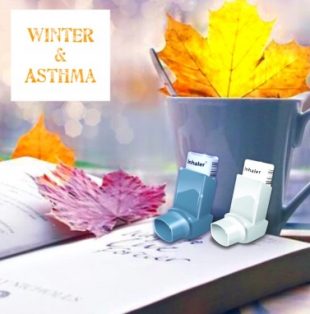
Annual flu vaccinations
The flu virus affects the airway and lungs, so it’s particularly important for children with asthma to be vaccinated annually, as a bout of flu could have serious health implications. It’s something we promote at every home visits and during our “Shoo Flu” social media campaign on Twitter, Instagram and Facebook.
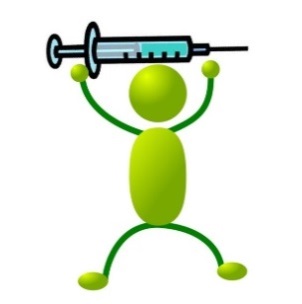
See more information on asthma and flu here:
http://mylungsmylife.org/topics/group-3/vaccinations-for-children-with-asthma/vaccinations-2/
https://www.asthma.org.uk/advice/inhalers-medicines--treatments/other/flu-vaccinations/
Inhaler Technique
Inhaler technique checks are often overlooked, but they are a fundamental part of asthma self-management, and are recommended at every patient review by national asthma guidelines. Many children and young people don’t use a spacer to take their inhalers, so there’s a lot of education to be done. Did you know that without a spacer device, you only get approximately 10% of the medication? It’s our job to ensure that 100% of our patients receive an inhaler technique check.
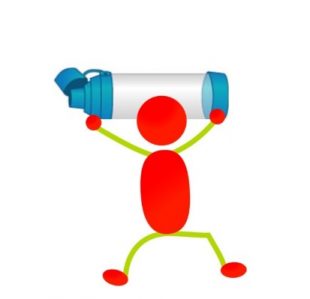
See more information on inhaler technique here:
Preventer inhalers
A key part of staying well over the winter is the consistent use of preventer inhalers. We offer children and their parents education about the role of inhaled steroids and how they work to reduce airway inflammation and improve asthma control. We have also developed patient “Concordance Cards” which are individualised and tailored to a patient’s routines and form an integral part of the self-management package we provide.
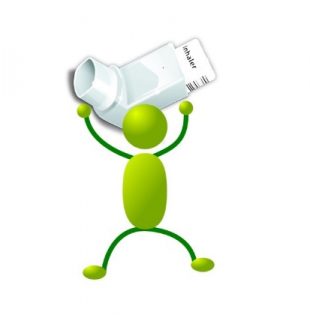
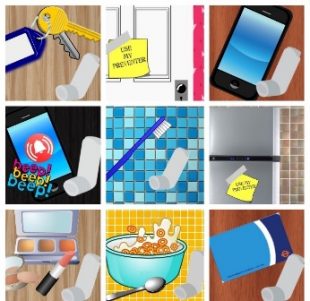
See more information on preventer inhalers here:
http://www.asthma.org.uk/advice/inhalers-medicines-treatments/inhalers-and-spacers/preventer/
Asthma Action Plans
Asthma action plans form the basis of successful self-management, with research showing that you’re 4 times less likely to attend hospital for asthma if you have one (Asthma UK, 2016).
We develop personalised asthma plans in close collaboration with children and their parents. We use Asthma UK’s child action plans, which are simple yet effective. The plan helps guide children and their parents through management of their asthma when well or unwell and identify their triggers. Once developed, we share their asthma plans with a child’s GP, school or hospital consultant. This seamless approach to asthma care leads to better long term health outcomes.
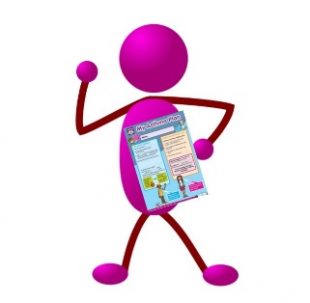
See more information on self-management here:
http://www.asthma.org.uk/advice/manage-your-asthma/action-plan/
http://www.nhs.uk/Conditions/Asthma/Pages/Treatment.aspx
Jo Massey, Children’s Asthma Nurse Specialists, Croydon Health Services NHS Trust
 Also check out Public Health England's All Our Health, a call to action for all health and care professionals to embed and extend prevention, health protection and promotion of wellbeing and resilience into practice. All Our Health provides a framework and tools and resources to support this ‘health promoting practice’ with quick links to evidence and impact measures and top tips on what works, this includes a Respiratory disease topic. #AllOurHealth
Also check out Public Health England's All Our Health, a call to action for all health and care professionals to embed and extend prevention, health protection and promotion of wellbeing and resilience into practice. All Our Health provides a framework and tools and resources to support this ‘health promoting practice’ with quick links to evidence and impact measures and top tips on what works, this includes a Respiratory disease topic. #AllOurHealth
